Pesticides 101: Learn the Terminology
Growing organic is about more than avoiding harsh synthetic chemicals. It’s about building healthy soil, growing healthy plants and harvesting delicious and flavorful vegetables. To do that, you have to know and understand the safe and effective tools available to protect your garden from pests, which can be tricky and confusing.
There are so many formulas at the garden center, like garden pesticides, herbicides, insecticides and fungicides. What do they all mean? And which ones are organic pesticides? Read on for the tools to shop the garden aisle with confidence.
What are Pesticides?
The term “pesticide” can be confusing because it is a classification given to substances, both natural pesticides and synthetic chemicals, that are used to kill, repel or control a pest. The term “pesticide” is broad and applies to the other “-cides” available, like herbicides, fungicides and insecticides.
Types of Pesticides
Herbicides (plants)
Herbicides are the most commonly applied pesticide. Used for weed management, there are a few different categories of herbicides that determine what it kills and how it works.
- Some herbicides are non-selective formulas and will kill all the plants they touch while other synthetic chemicals are selective and have been designed to target one just species.
- Another designation is pre- and post-emergent formulations. Some herbicides kill weeds on contact while other synthetic chemicals have been designed to contain pre-emergent qualities that interrupt the germination and growth of a weed.
In and around an organic garden, you’ll want to use a non-selective, post-emergent herbicide to maintain the health of your soil and nearby plants.
Insecticides (bugs)
Insecticides are a type of pesticide that are used to specifically target and kill bugs like soft-bodied insects, ants and wasps. There are two main classifications of formulas, contact vs. systemic. Some insecticides kill bugs on contact without residual activity while other systemic insecticides use a mode of action that has long term effects and stay on the plant for some time. In an organic garden, you’ll want to use an OMRI Listed® contact insecticide that leaves behind no harmful residue.
Fungicides (fungi and bacteria)
Fungicides are a type of pesticide that are used to specifically target plant pathogens, like fungus and bacteria. There are two main classifications of formulas, contact vs. systemic. Some fungicides kill fungi and bacteria on contact without residual activity while other systemic fungicides are taken into the plant tissue for long term effects and residual activity. In an organic garden, you’ll want to use an OMRI Listed® contact fungicide that leaves behind no harmful residue.
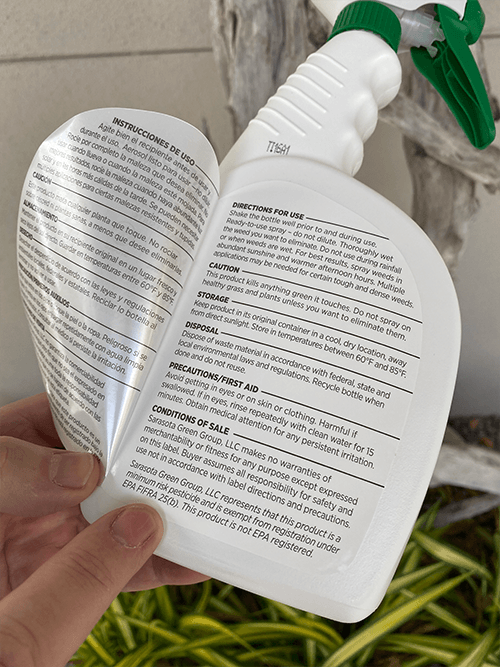
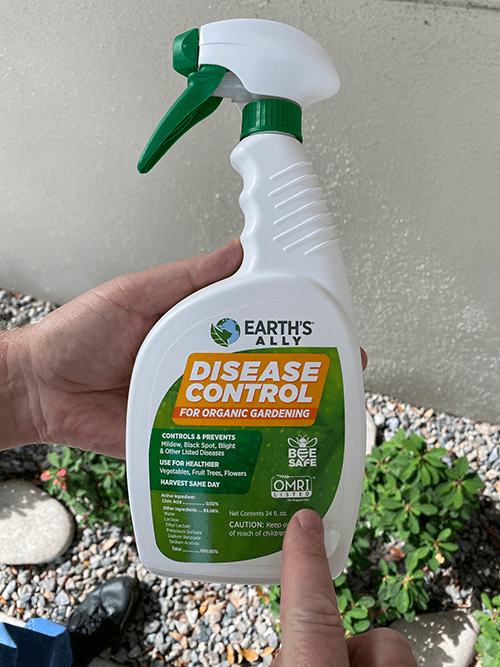
Say No To Synthetic Chemicals
There are natural pesticide formulas that can be used in an organic garden. When shopping, look closely at the label. All pesticides are carefully evaluated by the Environmental Protection Agency (EPA) for toxicity to humans and other organisms. Synthetic and harsh chemicals will have an EPA Registration number clearly labelled to ensure proper use and protect both people and the environment. Pesticides that contain ingredients that are generally recognized as safe by the EPA qualify for a minimum risk exemption called FIFRA 25(b). Now that you know more about pesticides and which ones to avoid in an organic garden, remember that Earth’s Ally products are all FIFRA 25(b) Exempt.
About Earth’s Ally Formulas
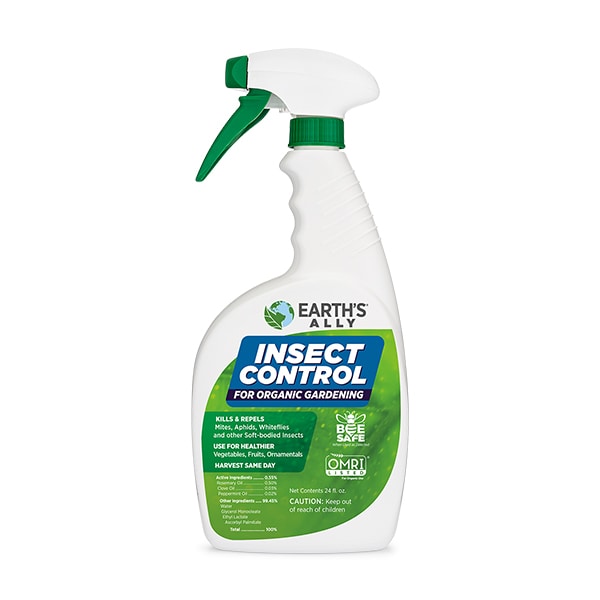 | 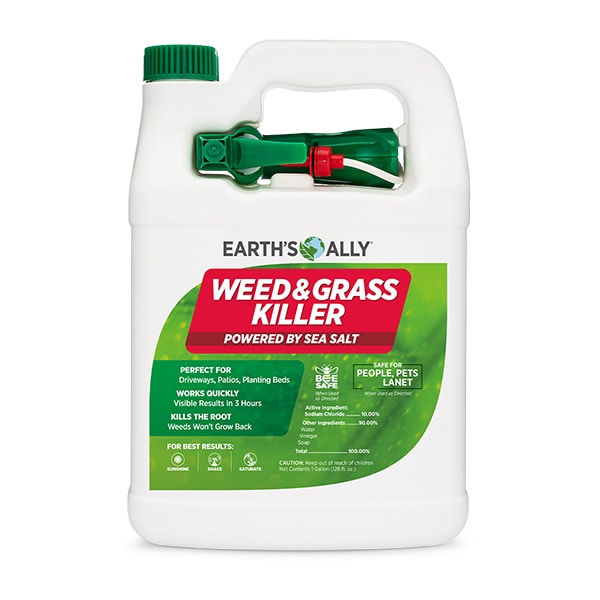  | 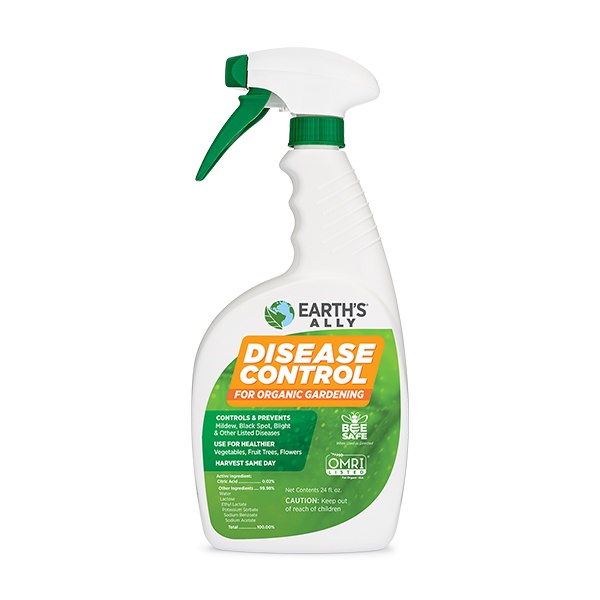 |
| Insect Control | Weed & Grass Killer | Disease Control |
| FIFRA 25(b) | FIFRA 25(b) | FIFRA 25(b) |
| Contact Insecticide | Non-Selective Herbicide | Contact Fungicide |
| OMRI Listed for organic gardening | Post-Emergent | OMRI Listed for organic gardening |
| Bee Safe | Bee Safe | Bee Safe |
We’d love to hear how Earth’s Ally natural pesticides are helping you grow healthy plants. Share your experience with our formulas and stay connected with the #EarthsAlly community on Facebook, Instagram and Twitter for access to our latest blog posts, giveaways and exclusive promotions.
For further reading on pesticide labeling, please visit the EPA website:
